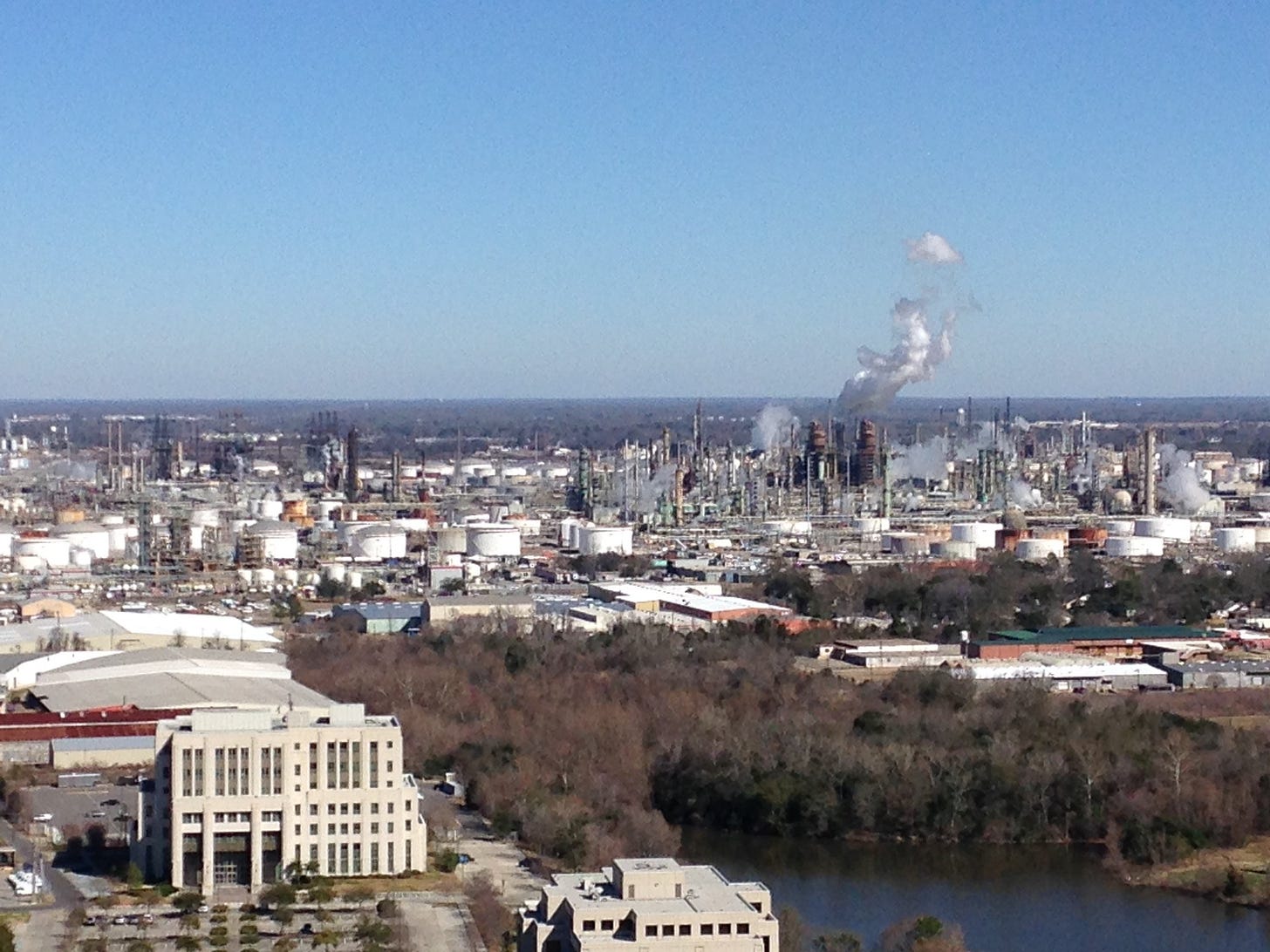Report Finds Formosa Complex "Financially Unviable"
An oversupplied market, regulatory challenges, popular opposition, and a finding of historical racial discrimination make the "Sunshine Project" too risky, the IEEFA finds
Photo Credit Gines A. Sanchez, CC BY-NC-ND 2.0
A new report from the Institute for Energy Economic and Financial Analysis (IEEFA) found that the proposed Formosa “Sunshine Project” in St. James Parish is financially unviable, and “would cause Formosa to make the wrong products, at the wrong time, at the wrong price, in the wrong place, and with the wrong financial calculus."


“IEEFA finds that the project will begin operations at a time of market oversupply, lower petrochemical prices, strong competition for market share, restrictive trade policies, environmental regulatory challenges, judicial findings of historic racial discrimination, popular opposition, rising construction costs, and a weakened bond rating,” said Tom Sanzillo, Director of Financial Analysis and Suzanne Mattei, Energy Policy Analyst at IEEFA in a joint statement announcing the report.
The report notes that the area of St. James Parish where the plant is proposed is “already saturated with toxic and carcinogenic pollution from decades of industrial activity.” Commonly referred to as “Cancer Alley,” this area has become the subject of both national and international attention. Earlier this month, human rights experts at the United Nations issued a statement calling on President Biden to take action to stem the environmental racism at play in the area, which hosts a majority Black population.
“Pollution and environmental racism are likely to remain persistent issues for Formosa regardless of the outcome of permit challenges,” the IEEFA report states. “The project site contains old graves, likely those of slaves who once worked the plantation, adding a deeper layer of meaning to the community’s connection to the land. A protracted dispute that is rooted in historical patterns of racial injustice would be polarizing.”
The proposed site of Formosa’s $9.4 billion manufacturing complex was once the home to sugarcane plantations near the Mississippi River. The activist group RISE St. James estimates that the 2,400-acre site hosts as many as seven gravesites of Black people who died while enslaved. In addition, the complex - which would include 10 chemical manufacturing plants and emit an estimated 800 tons of toxic air pollution each year - sits only one mile from a local elementary school.
In November, the U.S. Army Corps of Engineers suspended its permit for the proposed plant as the result of a lawsuit filed by The Center for Biological Diversity, RISE St. James, the Louisiana Bucket Brigade, and Healthy Gulf. According to the lawsuit, the Corps violated federal laws in approving the destruction of wetlands vital to protecting the region from the effects of climate change, as well as damaging storm surge caused by hurricanes. In addition, the lawsuit alleges that the Corps ignored the environmental and health impacts of the complex in addition to protecting the burial sites.
"The Army Corps' decision to suspend Formosa Plastics' wetlands permit is a good and obvious choice. Louisiana has seen seven named storms in the past five months, and Formosa has not planned its facility for hurricanes. There should be no more wetland permits for a company with such an awful pollution record as Formosa Plastics,” said Scott Eustis, community services director with Healthy Gulf. “Our volunteers are still picking up hundreds of thousands of pellets from a single plastic spill three months ago — we can't afford any new plastics plants until federal laws require cleanup of the trash already there."
In 2020, Formosa agreed to pay a record $50 million in cleanup and restoration costs in order to settle a civil lawsuit in Texas. The company’s Point Comfort plant was found to have discharged billions of plastic pellets into Texas waterways over several years. The settlement also included a commitment to zero future plastic discharges from the Texas plant, but that standard has not been applied to the Louisiana project.



